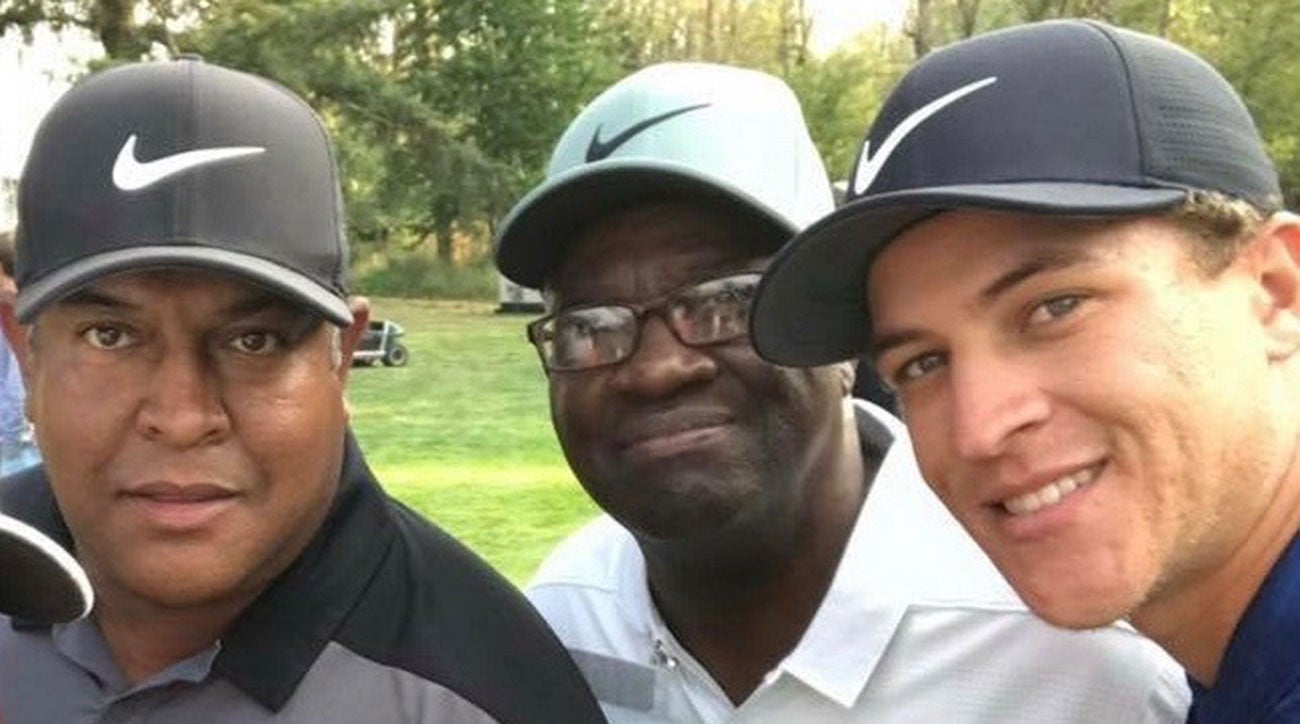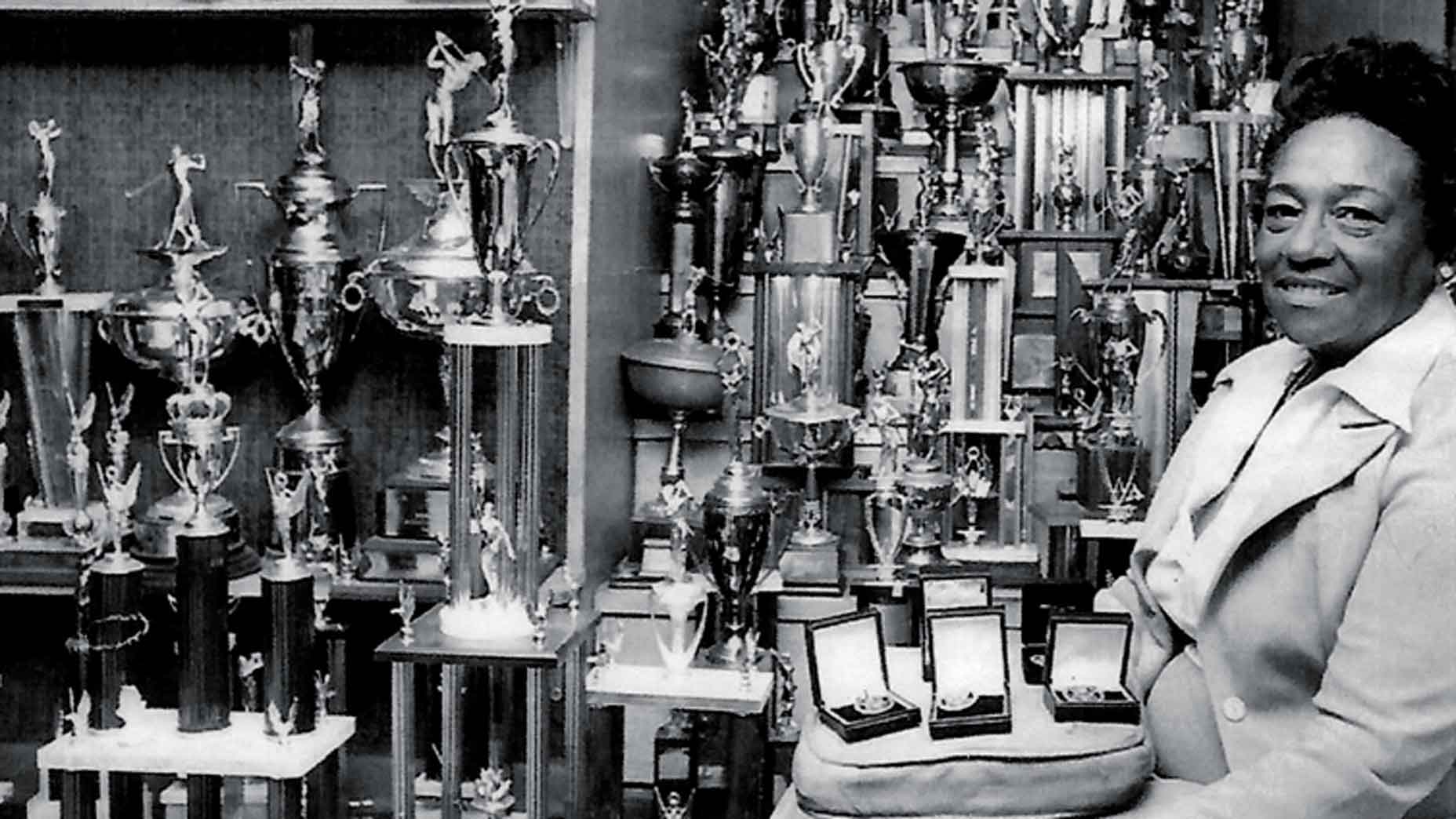How fitting, that Cameron Champ, one of the few players on the PGA Tour to raise his figurative right fist in the name of the Black Lives Matter movement, won the Tour’s Minneapolis event on Sunday. TPC Twin Cities, the birdie farm where Champ posted early and won, is 20 miles away from the intersection of 38th Street and Chicago Avenue, in Minneapolis, where George Floyd took his last breath.
As historical events, only one of these is significant. Champ, aware young man that he is, would be the first to tell you that. Champ was the player who wore a black golf shoe and a white golf shoe, the latter hand-marked with the letters BLM, when the Tour landed in Chicago last year.
‘This is the player I can be’: Cameron Champ finds his balance, wins 3M OpenBy: Josh Berhow
It was just last August — not even 11 months ago, though it feels like 11 years. This country, like the rest of the world, has been through a ringer since then.
For many of us, understandably so, golf has been an oasis, a break from the turmoil and heartache. From last spring on, tee sheets have been stuffed with our collective names. When Phil Mickelson won the PGA Championship at Kiawah in May, it felt like old times again, over-served spectators swarming a popular winner, as they did with Tiger when he won on that hot day at East Lake three long years ago. Bobby Jones got the same treatment.
It’s OK to live in a bubble — to a point. These typed words are a note of gratitude to Champ (nice name), for helping to keep us in the real world. You can’t hit driver like Cameron Champ, but you can imagine yourself, as he has, on the ground, the knee of a police officer on your neck.
“When people say, ‘All lives matter,’ yes, all lives matter,” Champ said last year. “But so do Black lives. As a country, we’ve kind of dug ourselves a hole. Now with media and people videotaping and seeing things, it’s starting to come alive. People are starting to talk about it, which is the good thing. Without dialogue, without talking about it, nothing is going to happen.”

Talk is not cheap, or it doesn’t have to be. Champ’s point is this: Talk is a necessary starting point. Education is a necessary starting point.
Champ’s paternal grandfather, and the man who started him in golf, was a Black man from rural Texas named Mack Ray Champ. He died in 2019. I consider it a privilege that I was able to get his life story, a short version of it, directly from him. His mother was a domestic, in Texas, in the ‘40s and ‘50s. Their house had no indoor plumbing. The Air Force got Mack to Germany, and, by happenstance, to golf. He married a white European. The Air Force acknowledged the marriage. The state of Texas did not, not at first.
Cameron knows all of this, of course. I know it because Mack Champ talked and talked. That is, he taught. His life is an American story that you can only be better for knowing. Cameron, like every last one of us, didn’t come from nowhere. His win on Sunday opens our eyes. That wasn’t his purpose but it’s a byproduct and a good one.
Family Man: Cameron Champ didn’t become golf’s new ‘it’ kid all by himselfBy: Michael Bamberger
Cameron considers himself African-American. He’s a lot of things, and card-carrying PGA Tour player is one of them, but only one of them. Black public figure with a platform is on the list, too, because he wants it to be. Earl Woods and Charlie Sifford would have said the same. It’s a responsibility Champ, who turned 26 last month, takes seriously. His teacher, Sean Foley, who is white, knows more about rap and soul and funk than his long-hitting pupil, and likely the civil rights movement of the 1960s, too. Foley went to a historically black college, Tennessee State University. He’s not living in the bubble that the PGA Tour has promoted for so long and so effectively, either. Champ and Foley are an interesting pair.
On Saturday night, I had, to use a phrase of yesteryear, dinner at the club. We were a group of 10: two white women, two white men, two Black women, four Black men. A couple of us could recall the cozy room in which we sat under its former name, the Men’s Bar. That is, the bar for white men. Good riddance.
The gent to my right, Jeffrey Sammons, a history professor at NYU, has spent decades researching various subjects that enrich our understanding of our game.
Ann Gregory, the Jackie Robinson of women’s amateur golf.
Golf’s ultimate secret legend, Ann Gregory, lived a life of firstsBy: Michael Bamberger
Pete Brown, winner of the Tour’s Andy Williams-San Diego Open in 1970. Yes, it was on TV. Yes, the crooner was there. No, the win, and Brown’s overall record, did not get him an invitation to the Masters.
Dewey Brown, the first Black member of the PGA of America.
Brown, Dr. Sammons told me, joined the PGA of America in 1928 but was out by 1934. Dr. Sammons believes Brown was forced to leave when the PGA of America instituted its infamous Caucasian-only clause in its bylaws. Brown, who made Warren Harding’s golf clubs, was out, until the clause was lifted. He died in 1973. An amazing life story. I had never heard of Brown, before our Saturday night dinner. “He could pass for white,” Dr. Sammons told me.
It’s a phrase of an era. Nobody would say of Cameron Champ that “he could pass,” though he’s light-skinned, too. Cameron Champ is not trying to, quote, pass. He’s standing up. Thank you, sir.
Michael Bamberger welcomes your comments at Michael.Bamberger@Golf.com.












